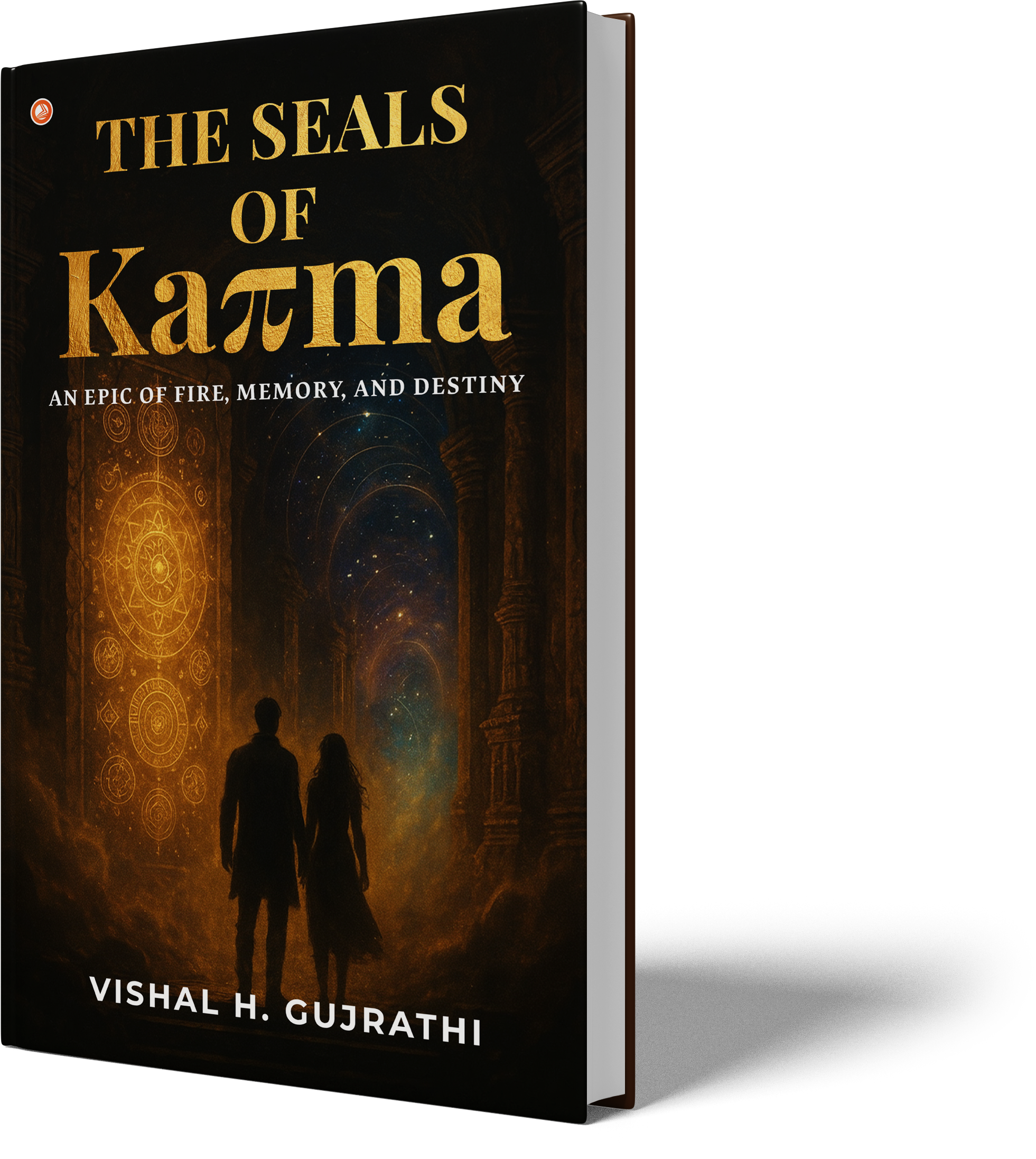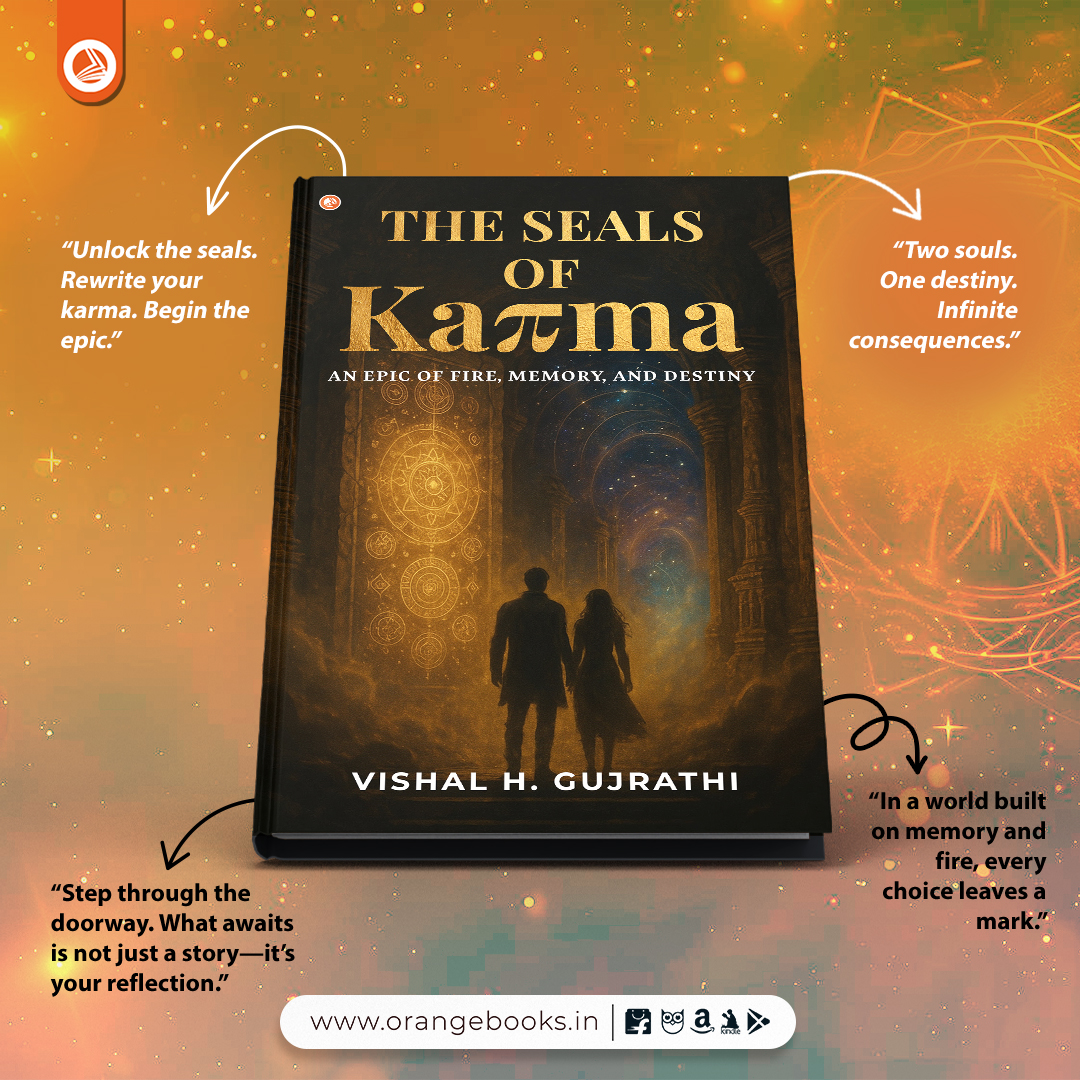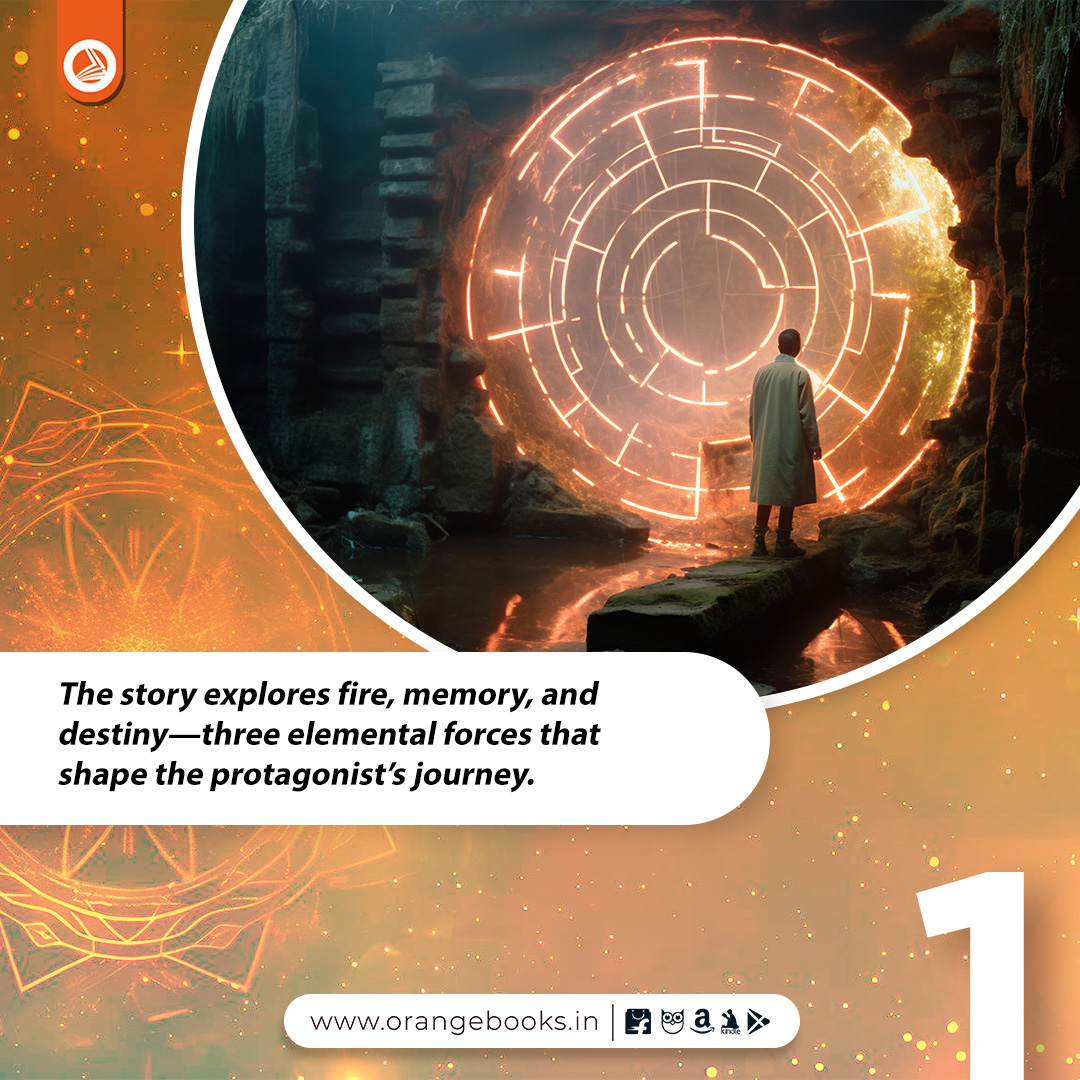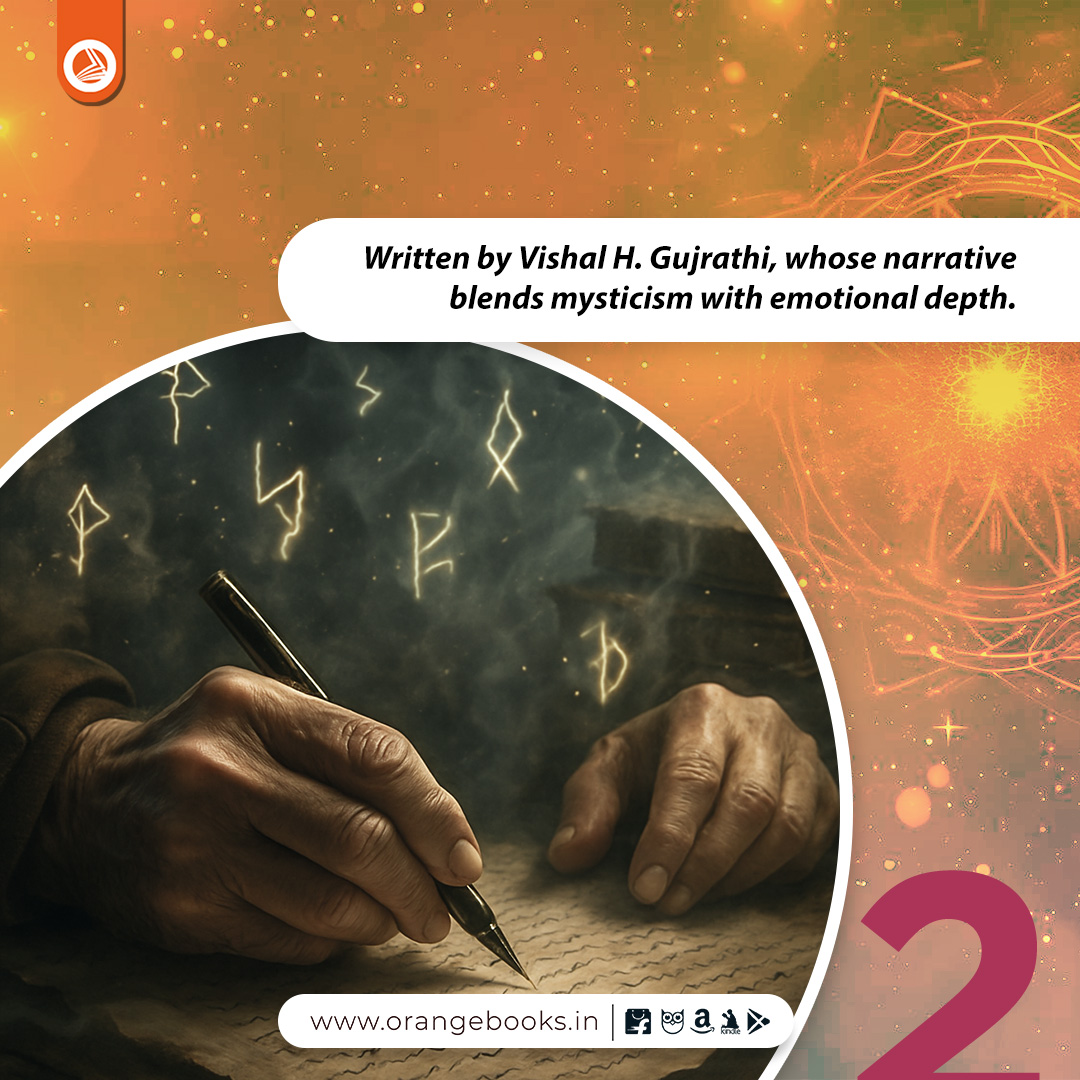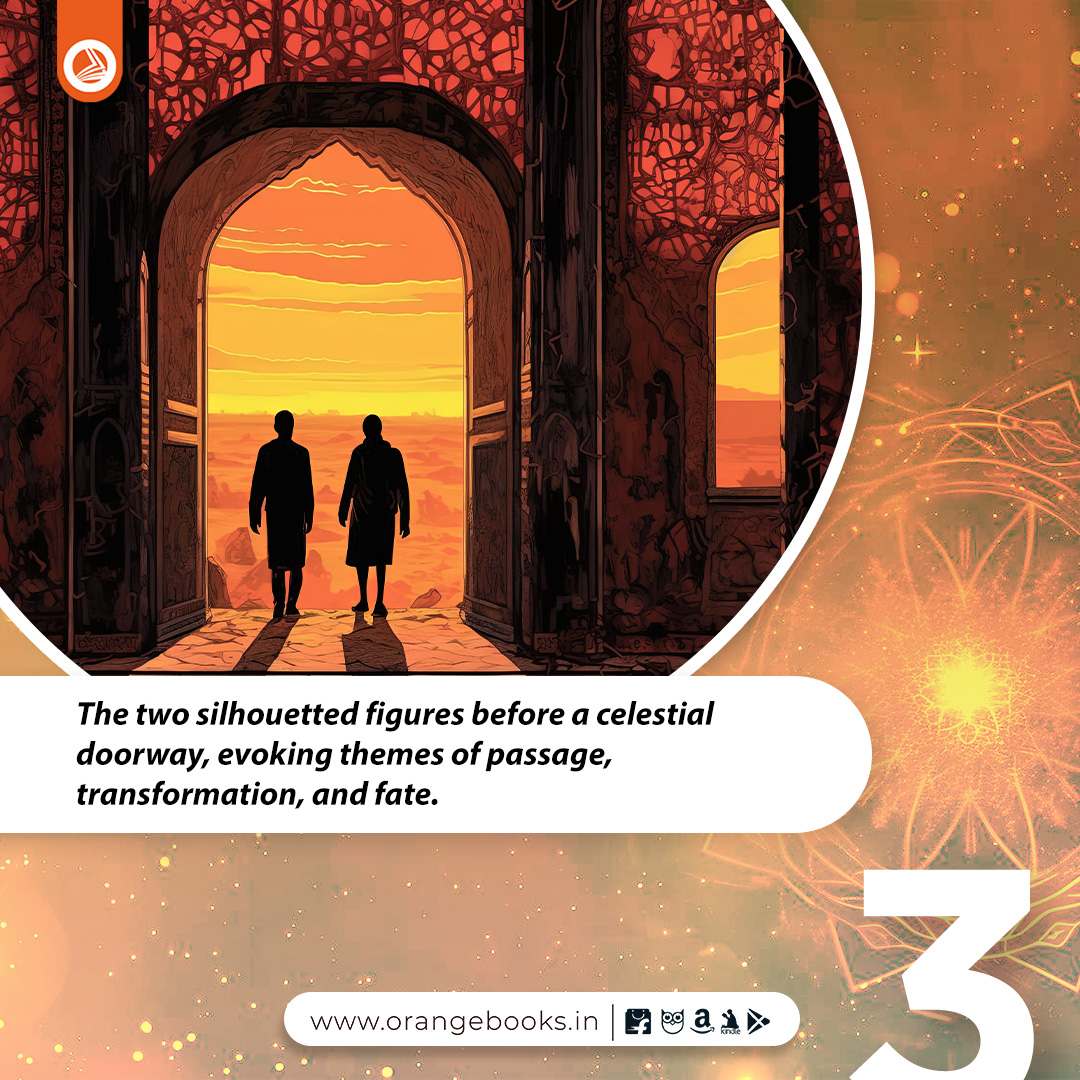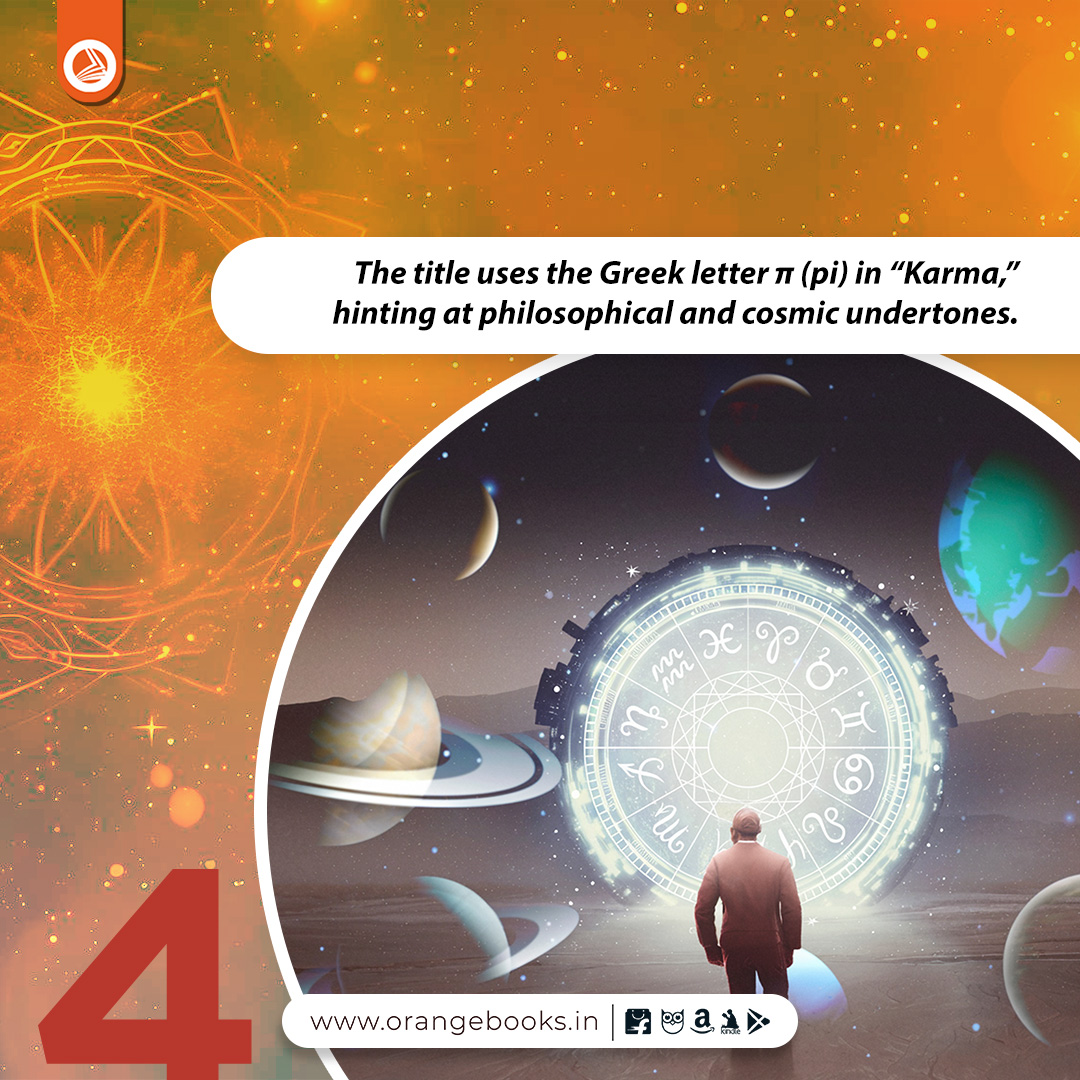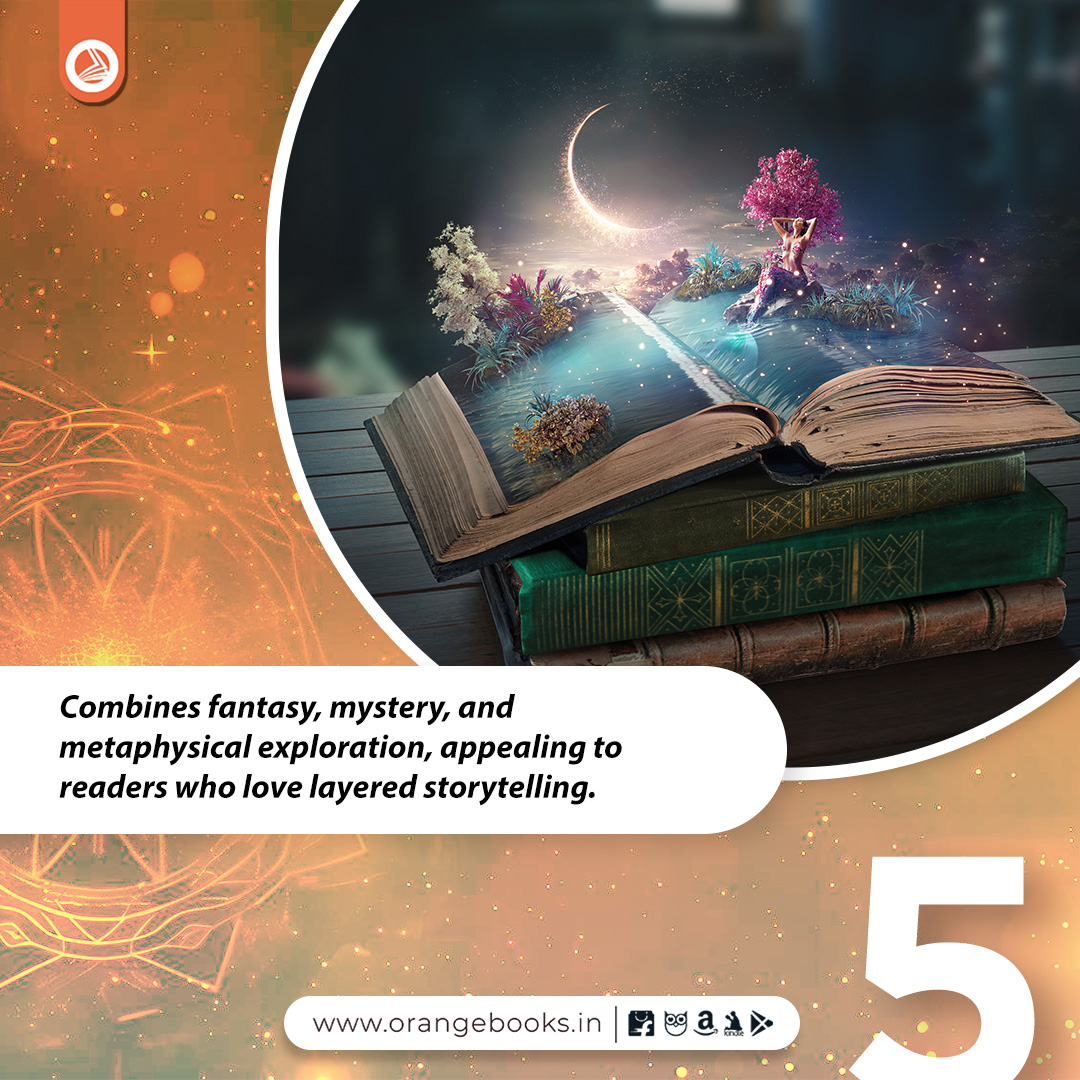- August 26, 2025
Vishal H. Gujrathi Talks About His Book “The Seals of Karma”
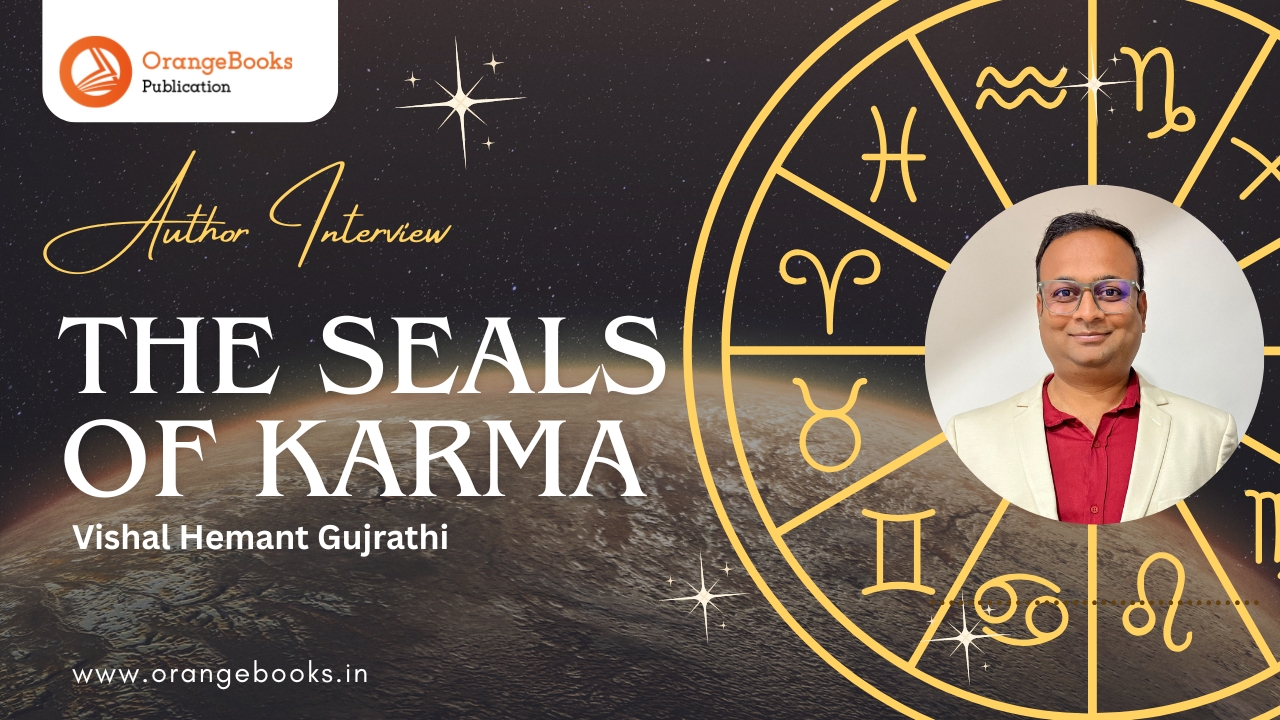
About the Author:
| Vishal Gujrathi is an MBA graduate and a seasoned administrator with a passion for storytelling and cultural exploration. With years of experience in leadership and organizational management, he brings depth and insight into every narrative he crafts. Vishal’s love for mythology, history, and travel deeply influences his writing, offering readers a rich blend of fact, fiction, and spiritual intrigue. When he’s not writing or working, he enjoys discovering new places and spending cherished moments with his adorable daughter. The Seals of Karma marks his debut into the world of fiction, blending imagination with timeless philosophical questions. |
Exclusive interview with the author
Q: What Inspired You To Write This Book?
A: I’ve always been fascinated by the intersection of mythology, philosophy, and destiny. The inspiration for The Seals of Karma came from a deep curiosity about how ancient truths and karmic forces might still shape our lives today. I wanted to explore these timeless ideas through a modern narrative—one that feels both spiritual and thrilling. The idea of a protagonist discovering his role in a larger, cosmic design was too powerful to ignore.
Q: Can You Tell Us About The Book?
A: The Seals of Karma is a mytho-philosophical thriller that follows Aditya, a seemingly ordinary man whose life takes a turn when he becomes entangled in a hidden war between ancient forces. As he unravels the secrets of the seals—mystical relics tied to karmic balance—he encounters lost legends, immortal warriors, and spiritual dilemmas. At its core, the book is about self-discovery, destiny, and the eternal struggle between chaos and order.
Q: What Does The Title Mean?
A: The title The Seals of Karma refers to ancient, metaphysical seals that guard karmic truths and cosmic balance. Each seal holds a lesson or trial, echoing the idea that karma isn’t just a record of deeds—it’s a living force that tests, transforms, and teaches. The title also symbolizes the locked potential within each character and how their choices determine their path.
Q: What Did You Learn When Writing The Book?
A: Writing this book taught me patience, discipline, and the power of rewriting. But beyond the craft, it deepened my understanding of karma—not just as a spiritual concept but as a narrative tool. I learned how stories can serve as mirrors to our own internal conflicts and how mythology can be more relevant today than ever before.
Q: Where Do You Get Your Information Or Ideas For Your Books?
A: My ideas are born from a mix of ancient scriptures, mythological texts, travel experiences, and deep philosophical inquiries. I read extensively across cultures and traditions—from the Mahabharata to Greek myths to Zen teachings—and reinterpret those ideas in a fictional, contemporary setting. Real conversations, history, and personal introspection also feed the creative process.
Q: Do You Have Any Suggestions To Help Others To Become A Better Writer? If So, What Are They?
A: Read widely, Write regularly and Be patient. Writing is not just about putting words on a page; it’s about refining ideas, embracing feedback, and learning to sit with discomfort. Also, don’t wait for inspiration—discipline is what turns a writer into an author.
Q: Do You Try More To Be Original Or To Deliver To Readers What They Want?
A: I try to strike a balance. Originality gives a story its soul, but understanding readers helps shape how that soul is communicated. I aim to offer something fresh and thought-provoking, while still ensuring it connects emotionally and thematically with the reader.
Q: What Is The Most Difficult Part About Writing For You?
A: The middle. Starting is exciting, ending is satisfying, but the middle often feels like a labyrinth. Keeping the momentum while staying true to the plot and characters is always a challenge.
Q: What Does Success Mean To You? What Is The Definition Of Success?
A: Success, for me, is impact. If my story stirs thought, brings clarity, or stays with someone long after they finish reading, that’s success. Of course, reaching a wide audience matters—but meaningful connection matters more.
Q: What Advice Would You Give To Aspiring Authors?
A: Start now. Don’t wait for perfect conditions or the “right time.” Write your truth, stay curious, and don’t be afraid of rewriting. And remember—writing a book is not just about being published; it’s about becoming the person who could write it.
This book is published by OrangeBooks Publication. All rights are reserved with the author & the publisher.


